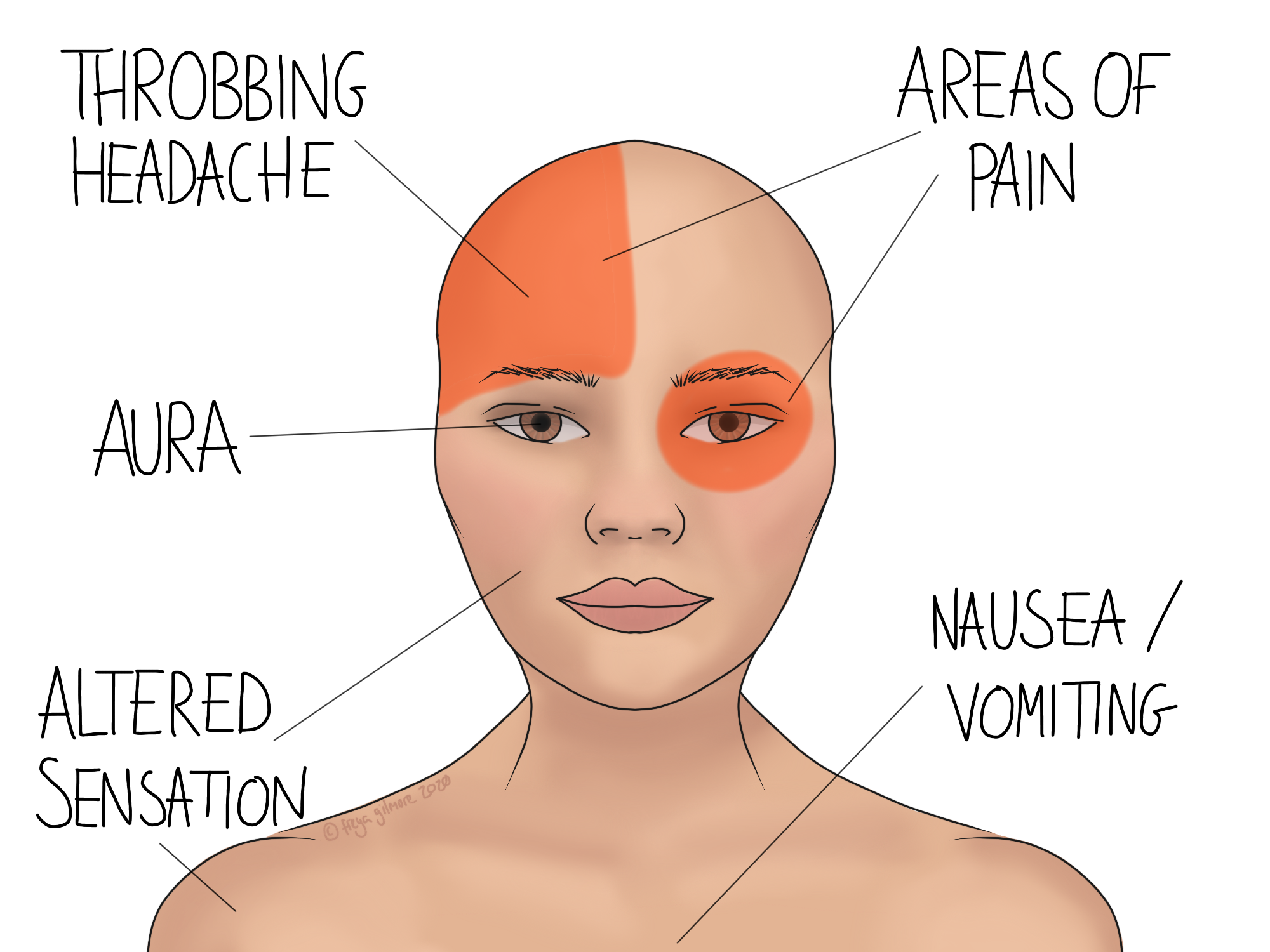Migraine Prevention and Management
Migraines are complex, and still not fully understood. Current thinking is that they may be caused by a combination of neurological and vascular changes. There may also be involvement from nearby muscles, similar to cervicogenic headaches.
Symptoms of Migraine
One person’s migraine may present quite differently to another’s. The condition can be separated into two types: with aura, and without aura. An aura is a collection of symptoms that precede the migraine itself. Typical aura can consist of:
visual disturbances including flashing lights or zig zags
other sensory changes
speech or language changes
All of these symptoms resolve completely on their own, and there is no change to motor function. When movement is affected, this may be the sign of an atypical aura. You should speak to your GP if this is a new symptom for you.
Headache
Not all migraines involve a headache. For those that do, the headache tends to last between 4 hours and 3 days. It is focused to one side of the head, and the pain can be described as throbbing or pulsing. Symptoms are made worse by activity. It is a common misconception that migraines are just bad headaches. In fact, intensity of pain can be anywhere from moderate to severe.
Migraine headaches may be accompanied by nausea, as well as sensitivity to light or sound. As a result, some people find that laying down in a dark and quiet room is the best way for them to get through an attack.
Management of Migraine
There are medications available to help manage the symptoms of migraines, but research shows that manual therapy can be more effective. Your osteopath may want to work into the muscles and joints around the neck and shoulders. If you hold a lot of tension around here, the muscular pull could have an effect on your symptoms. We may also give you exercises to do between treatments to keep your symptoms at bay. Some people find benefit in using a warm or cool compress; your osteopath will be able to advise which might be appropriate for you based on your case.
Beyond treatment, your osteopath may be able to support you in identifying your triggers. Some people find that certain foods and drink can start or aggravate an attack. Sugar and caffeine are often highlighted as potential triggers. Beyond this, stress, poor sleep, hormonal changes, or dehydration can all play a role too. Keeping a diary of food, mood, and sleep can help to paint a picture over time.
Book an appointment in Flitwick here to manage your migraine.

